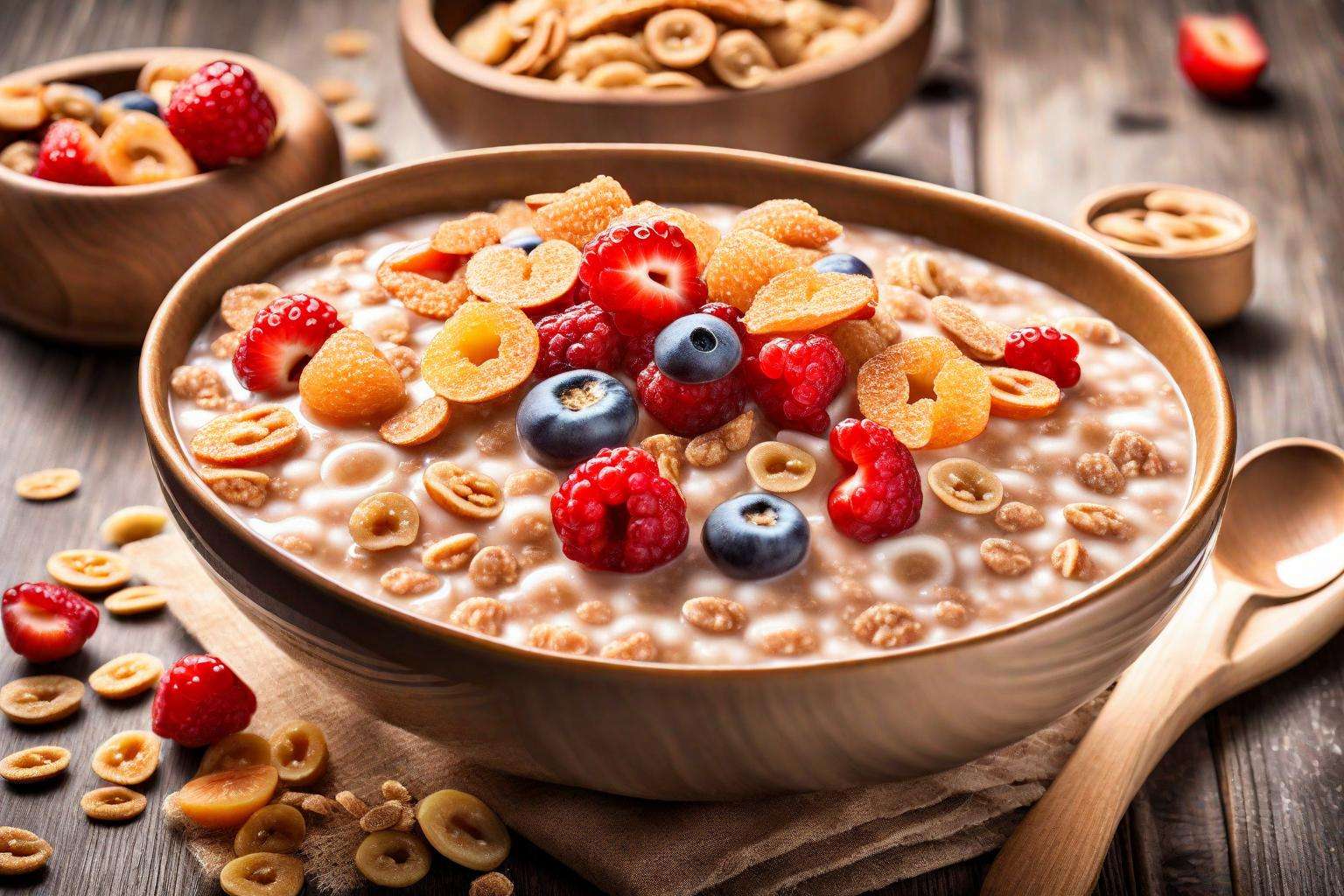Although it’s a wonderful experience, morning sickness is a common problem during pregnancy. It can be difficult to find relief, which is why it’s critical to understand which foods are best for pregnancy nausea. Nausea is a common occurrence for expecting mothers, particularly in the first trimester.
Maintaining a balanced diet may be challenging as a result, but the appropriate foods might assist with these symptoms. We’ll look at the best foods for pregnancy nausea in this article, along with some comforting ideas.
We’ll walk you through what to eat and what to avoid, from crackers to ginger, to help you manage your symptoms and keep you and your baby healthy.
Understanding Pregnancy Nausea:
Pregnancy nausea, often termed morning sickness, is a common and challenging symptom for many expectant mothers, typically emerging during the first trimester. This condition is characterized by persistent feelings of queasiness and, in many cases, vomiting.
Understanding pregnancy nausea is essential for effectively managing it and finding relief through dietary choices.
Causes of Pregnancy Nausea
The early stages of pregnancy are marked by fast hormonal changes, which are the main cause of pregnancy nausea. Estrogen and human chorionic gonadotropin (hCG) levels rise dramatically, impacting the stomach and digestive tract.

This spike in hormones may cause the unnerving sensations linked to nausea. Furthermore, the pregnancy-maintaining hormone progesterone relaxes the muscles of the digestive tract, which slows down digestion and increases discomfort in the stomach.
The increased sensitivity to tastes and odors that many pregnant women feel is another significant element. Once-mild tastes or smells can become overpowering and make you sick.
Due to the physical and psychological strain of an early pregnancy, stress and exhaustion also contribute to nausea.
To manage these symptoms, it is crucial to incorporate the best foods for pregnancy nausea into your diet. Foods like ginger, which has natural anti-nausea properties, and bland options such as crackers, can help soothe the stomach.
By understanding pregnancy nausea and knowing the best foods for pregnancy nausea, expectant mothers can better navigate this challenging phase.
Adopting these dietary strategies can significantly improve comfort and well-being during pregnancy.
Best Foods for Pregnancy Nausea:
Finding the best foods for pregnancy nausea is essential for expectant mothers seeking relief from the discomfort of morning sickness. Certain foods can help soothe the stomach and alleviate nausea, making it easier to maintain a balanced diet during this critical time.
Here are some of the best foods for pregnancy nausea, along with details on why they are effective and how to incorporate them into your diet:
-
Ginger
Benefits: Ginger is renowned for its anti-nausea properties. It contains compounds like gingerol and shogaol, which have been shown to reduce nausea and vomiting.

How to Consume: Ginger tea, ginger ale (made with real ginger), ginger candies, or fresh ginger grated into meals can all be effective. Sipping ginger tea in the morning or nibbling on ginger candies throughout the day can provide continuous relief.
-
Crackers and Dry Toast
Benefits: Bland, dry foods like crackers and toast are easy on the stomach and can help absorb excess stomach acid, reducing feelings of nausea.
When to Eat: Eating a few crackers or a piece of dry toast first thing in the morning can help manage nausea before it starts. Keeping these snacks handy throughout the day can also help keep nausea at bay.
-
Bananas
Benefits: Bananas are rich in potassium and easy to digest, making them an excellent choice for soothing an upset stomach.
Serving Suggestions: Eat bananas plain as a snack, add them to smoothies, or slice them onto cereal or oatmeal for a gentle, nutritious meal.
-
Apples and Applesauce
Benefits: Apples are high in fiber and can help regulate digestion, while applesauce is easy to digest and can be soothing.
How to Include: Fresh apple slices make a great snack, and unsweetened applesauce can be eaten on its own or added to other foods.
-
Broths and Soups
Benefits: Clear broths and soups provide hydration and nutrients without being too heavy on the stomach. They are also easy to digest and can be very soothing.
Best Types: Opt for vegetable broths, chicken broth, or simple soups like chicken noodle or miso soup. Sipping warm broth can help keep you hydrated and provide necessary electrolytes.
-
Herbal Teas
Benefits: Herbal teas can be very soothing and hydrating. Certain herbs, such as peppermint and chamomile, are known for their calming effects on the stomach.

Recommended Types: Peppermint tea can help reduce nausea, while chamomile tea can promote relaxation. Sip these teas slowly, and make sure they are not too hot to avoid irritation.
Incorporating these best foods for pregnancy nausea into your diet can help manage symptoms and improve overall comfort during pregnancy. Eating small, frequent meals and staying hydrated are also key strategies.
By choosing foods that are gentle on the stomach and rich in necessary nutrients, expectant mothers can better navigate the challenges of pregnancy nausea.
Foods to Avoid During Pregnancy Nausea:
Avoiding certain foods during pregnancy nausea is just as important as knowing what to eat. Some foods can exacerbate symptoms, making it more difficult for expectant mothers to manage their nausea. Here are the main types of foods to avoid and the reasons why they can worsen nausea:
-
Spicy Foods
Why to Avoid: Spicy foods can irritate the stomach lining and increase feelings of nausea. They often contain capsaicin, which can cause a burning sensation and lead to digestive discomfort. Examples: Hot peppers, spicy sauces, curry dishes.
Alternative Suggestions: Opt for mild or non-spicy versions of your favorite dishes. Season with herbs and mild spices instead of hot spices.
-
Fatty and Fried Foods
Why to Avoid: Fatty and fried foods are difficult to digest and can cause stomach upset. They can increase the production of stomach acid, leading to heartburn and nausea.
Examples: Fried chicken, French fries, greasy fast food, heavy cream sauces.
Alternative Suggestions: Choose baked, grilled, or steamed options instead. Lean proteins and vegetables prepared with minimal oil are better choices.
-
Caffeinated Beverages
Why to Avoid: Caffeine can be dehydrating and may exacerbate nausea. It can also stimulate the stomach lining, increasing acid production and causing discomfort.
Examples: Coffee, caffeinated teas, energy drinks, soda.
Alternative Suggestions: Drink herbal teas, water, or decaffeinated beverages. Ginger tea and peppermint tea can be soothing alternatives.
-
Sugary Foods
Why to Avoid: Sugary foods can cause rapid spikes and drops in blood sugar levels, which can trigger nausea. They can also ferment in the stomach, leading to bloating and discomfort.
Examples: Candy, pastries, sugary cereals, sweetened beverages.

Alternative Suggestions: Choose natural sweeteners like honey or fruit. Opt for whole fruits and unsweetened snacks to satisfy sweet cravings.
-
Strong-Smelling Foods
Why to Avoid: Strong odors can be a major trigger for nausea, especially in the heightened state of smell sensitivity during pregnancy. Foods with strong smells can easily provoke queasiness.
Examples: Strong cheeses, fish, garlic-heavy dishes, and certain cooked vegetables like broccoli or cabbage.
Alternative Suggestions: Eat foods with mild aromas and prepare meals in well-ventilated areas. Cold foods often have less odor than hot foods, so cold sandwiches or salads may be more tolerable.
Additional Tips for Managing Pregnancy Nausea:
- Small, Frequent Meals: Instead of three large meals, eat small amounts every few hours to keep your stomach from becoming too full or too empty.
- Stay Hydrated: Drink plenty of fluids, but avoid drinking large amounts at once. Sipping water, herbal teas, or clear broths throughout the day can help.
- Rest and Relaxation: Stress and fatigue can worsen nausea. Ensure you get plenty of rest and practice relaxation techniques like deep breathing or prenatal yoga.
- Consult a Healthcare Provider: If nausea is severe or persistent, seek advice from a healthcare professional. They can provide additional strategies or medications if necessary.
By understanding and avoiding these foods, expectant mothers can better manage their nausea and ensure they are eating a balanced diet that supports their health and the health of their baby.
Incorporating the best foods for pregnancy nausea while avoiding those that exacerbate symptoms is a key strategy for a more comfortable pregnancy.
Conclusion:
Managing pregnancy nausea can be challenging, but understanding which foods help and which to avoid can make a significant difference. Incorporating the best foods for pregnancy nausea, such as ginger, crackers, and bananas, while avoiding spicy, fatty, and strong-smelling foods, can provide much-needed relief.
By making mindful dietary choices, expectant mothers can better navigate the discomfort of morning sickness and maintain a healthy, balanced diet throughout their pregnancy. Click to learn more.
FAQs:
- Q: What causes pregnancy nausea?
- A: Pregnancy nausea, commonly known as morning sickness, is primarily caused by hormonal changes in the body, particularly the rise in hormones like hCG and estrogen.
- Q: What are the best foods for pregnancy nausea?
- A: The best foods for pregnancy nausea include ginger, crackers, bananas, applesauce, and broths.
- Q: What foods should I avoid during pregnancy nausea?
- A: It’s best to avoid spicy foods, fatty and fried foods, caffeine, sugary foods, and strong-smelling foods, as these can exacerbate nausea.
- Q: When does pregnancy nausea typically occur?
- A: Pregnancy nausea often occurs during the first trimester, typically starting around the sixth week of pregnancy and subsiding by the end of the first trimester for many women.
- Q: How can I manage pregnancy nausea besides diet?
- A: In addition to dietary changes, managing pregnancy nausea can involve staying hydrated, getting plenty of rest, practicing relaxation techniques, and consulting a healthcare provider for additional support or medication options if necessary.
